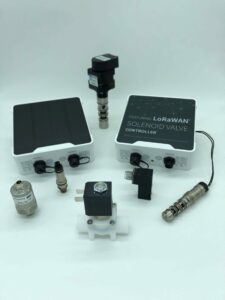Web enabled solenoid valve – proven in utilities
Our news is that we have designed a dual output wireless (IOT) solenoid valve controller to provide a web-based control solution that is now proven by PSI in the utility sector. This new development enables independent solenoid valve control for any compressed air, inert gas or liquid and is the first product released under PSI’s Indiott® Industrial IoT range.
Using MAC bullet valve® technology alongside our 25 years of experience in designing battery operated solenoid valve control systems, the new IOT remote controller can operate a single solenoid valve over 250,000 times and has a battery life of over 10 years including the telemetry. There is also a solar powered version with even greater power independence and longer life. The controller can accommodate multiple valves in the Indiott® technology stack and can even integrate a pressure transducer on one of the channels to give an automated response to pressure rise or decay.
While the technology is available and used in liquid valve control for irrigation and agriculture, our design now includes ultra-low power MAC Valve latching technology enabling industrial and commercial use on air and inert gas systems.
We utilise LoRaWAN ® or GSM/LTE telemetry in the controller enabling the customer to choose to add them to their existing public LPWAN infrastructure or have them completely remote, disparate and isolated on the GSM network. They do not use client WIFI or any local resource (not even electricity) and are designed to work independently of existing hardwired SCADA control systems. The possibilities for the web enabled remote controlled solenoid valve and pressure controller technology stack are extensive; this system provides a low-cost robust secure way of operating remote assets without the need for expensive local infrastructure.

In this instance, we used a MAC solenoid valve, as one of the most robust valve manufacturers in the industry, although the system is also feasible with the FIM micro valve range. It depends purely on the application.
Smart Machines and Factories covered our story in January 2024
.![]()
